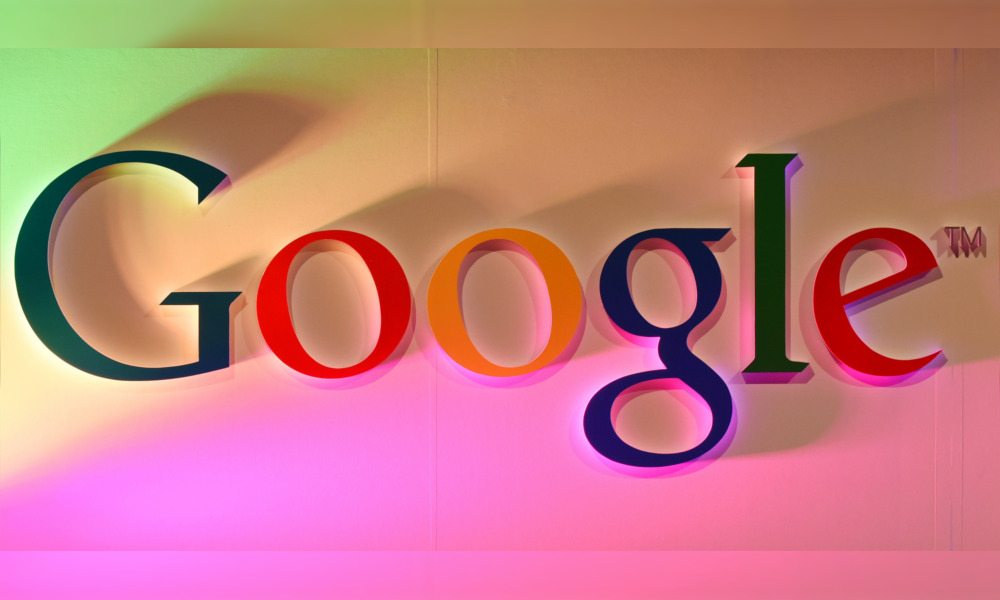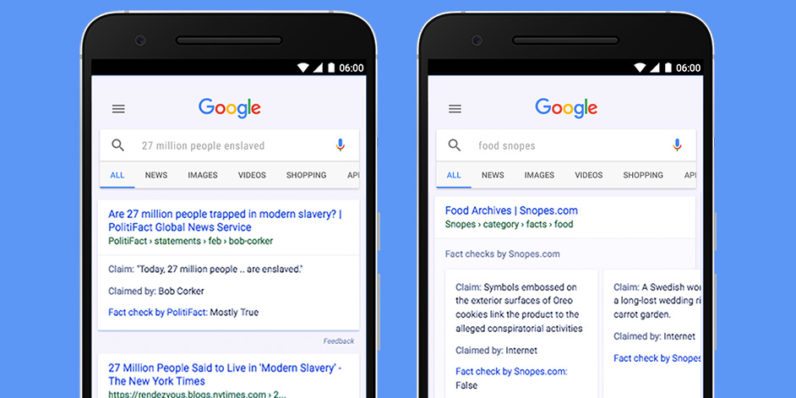Google Launches ‘Fact Check Label’ to Fight Fake News

Toggle Dark Mode
Google will start displaying a “fact check label” flagging news as true or false. The feature is rolling out globally and will be available in its general search results as well as in Google News.
This means that if you conduct a Google search on a subject that’s highly controversial or contested, it’s likely that you’ll find a breakout box with information provided by fact-checkers (like Politifact and Snopes) designating a claim as either true or false. Beyond Google’s fact-checking partners, the feature will also be open to news organizations like The New York Times and The Washington Post, allowing them to pass judgment on certain articles or assertions.
The fact-checking organizations will not be paid, nor will news items with fact check labels be given preferential treatment by Google’s search algorithm. To be included in the program, publishers must be “algorithmically determined to be an authoritative source of information”, Google wrote in its announcement.

The fact-check boxes, which resemble those that appear in Google search results for movies and books, will provide snippets of information about a claim, the person or organization making the claim, the identity of the fact checker, as well as the results of the fact check.
To be clear, this feature doesn’t censor results and aims instead to give readers easier access to fact-checking services and information about the veracity of certain assertions they are exposed to. When there are legitimate differences regarding the validity of a claim, Google will present those differing opinions to users.
“These fact checks are not Google’s and are presented so people can make more informed judgments. Even though differing conclusions may be presented, we think it’s still helpful for people to understand the degree of consensus around a particular claim and have clear information on which sources agree,” Google wrote in its blog post. “As we make fact checks more visible in Search results, we believe people will have an easier time reviewing and assessing these fact checks, and making their own informed opinions.”
Any publisher can now apply to have fact check labels attached to content, though the Google search algorithm will decide whether they appear in the results pages, according to its spokeswoman. To be included, publishers need to meet a set of requirements, which include using “the Schema.org ClaimReview markup on the specific pages where they fact check public statements” or “the Share the Facts widget developed by the Duke University Reporters Lab and Jigsaw,” according to Google.
The new feature, which is the result of a joint effort between Google and fact-checking startup Jigsaw, comes amid mounting pressure on internet platforms to stem or at least address the tide of “fake news” and misinformation. Facebook bore the brunt of the criticism, in the wake of revelations that it had manipulated its ‘Trending News’ feature, but Google became a target of scrutiny as well. In response to criticism, the internet search giant introduced a version of the feature on Google News in the US and UK for a limited trial run last October, which it is now expanding to search results pages globally in all languages.
“From our perspective, there should just be no situation where fake news gets distributed, so we are all for doing better here,” Google CEO Sundar Pichai said to BBC News shortly after Trump’s election.
Facebook has also adopted a variety of measures to combat the spread of fake news, which haven’t been very well received. Just yesterday, the social media platform published an educational pamphlet with tips to help users identify misinformation that will be featured prominently at the top of their News Feeds.






